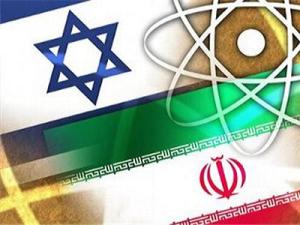 Israeli officials played down a report in an Israeli newspaper on Monday that accused Washington of secretly negotiating with Tehran to keep the United States out of a future Israel-Iran war.
Israeli officials played down a report in an Israeli newspaper on Monday that accused Washington of secretly negotiating with Tehran to keep the United States out of a future Israel-Iran war.
Israel’s most widely-read newspaper, Yedioth Ahronoth, said Washington had approached Tehran through two unidentified European countries to convey the message that the United States would not be dragged into hostilities if Israel attacked Iran over its nuclear programme.
The paper said the United States told Iran it expected Tehran in return to refrain from retaliating against U.S. interests, including its military in the Gulf. The report did not disclose any source for its information.
An Israeli official, who asked not to be identified, described the report as illogical.
“It doesn’t make sense,” the official said. “There would be no need to make such a promise to the Iranians because they realise the last thing they need is to attack U.S. targets and draw massive U.S. bombing raids.”
The White House did not immediately respond to a request for comment over the Israeli newspaper story, which appeared during the Labor Day holiday.
President Barack Obama is fighting accusations from his Republican challenger Mitt Romney that he is lax in support for Israel, Washington’s long-term ally in the Middle East.
The Obama administration says it is strongly committed to Israel’s security and to preventing Iran from obtaining a nuclear weapon. White House spokesman Jay Carney said on Sunday: “I can tell you that there is absolutely no daylight between the United States and Israel when it comes to the necessity of preventing Iran from acquiring a nuclear weapon.”
The United States and Israel both accuse Iran of developing nuclear capability that could be used to make a weapon, and have both said they reserve the right to take military action to prevent Iran from making a bomb.
However, the Obama administration has repeatedly made clear in public that it thinks diplomacy and tough new sanctions have not yet run their course, even as Israeli officials say the window for effective military action is rapidly closing.
Israel’s Deputy Prime Minister Dan Meridor said he still believed Obama’s assurances that Washington was prepared to use force if needed to prevent Iran from developing a bomb.
“I don’t know what kind of messages Yedioth Ahronoth heard,” Meridor said. “But I think the Iranians understand … that if they cross a line towards a bomb, they could encounter very strong resistance, including all the options that are on the table – as the American president has said.”
Yedioth Ahronoth is a mainstream newspaper, not known for taking a particular political line on U.S.-Israeli ties.
Iran denies it is seeking a weapon and has threatened to retaliate fiercely against both the United States and Israel if either attacks it.
Obama has had frosty relations with Israel’s rightwing Prime Minister Benjamin Netanyahu, who is due to visit the United States this month.
U.S. ELECTION
The Nov. 6 presidential election is seen hinging mostly on the U.S. economy with foreign policy taking a back seat. But support for Israel is an important issue for many U.S. voters, including evangelical Christians as well as Jews who could prove critical in battleground states like Florida and Pennsylvania.
Obama wants to shore up his advantage among Jewish voters. He received 78 percent of the Jewish vote in the 2008 election, but a nationwide Gallup poll in June showed him down to 64 percent backing versus Romney’s 29 percent.
Obama said in March “I have Israel’s back”. But administration officials have also made clear they regard the prospect of an Israeli attack on Iran with alarm.
General Martin Dempsey, chairman of the Joint Chiefs of Staff, was quoted in Britain’s Guardian newspaper as saying of a prospective Israeli attack on Iran: “I don’t want to be complicit if they choose to do it.”
Setting what is expected to be the main talking point for his coming U.S. visit, Netanyahu said on Sunday the time had come for world powers to declare a “clear red line” – which he did not define – for Iran’s nuclear activities.
The West had failed so far to convince Tehran it was truly determined to halt Iran’s nuclear activity, Netanyahu said, in remarks widely portrayed in Israel as a critique of Obama.
The Obama administration and the European Union imposed harsh new sanctions on Iran which took effect in July. U.S. officials say they hope that this will persuade Iran to give up its nuclear ambitions.
Of Dempsey’s comments, Meridor said: “I’m sorry we’ve reached the situation where Dempsey said what he said, but this campaign (against Iran) is continuing and it must be conducted very wisely.”
Netanyahu’s cabinet is divided over the wisdom of attacking Iran, and Israeli officials have dropped heavy hints of a climbdown strategy, under which Netanyahu would shelve threats of an attack now in return for a stronger public pledge from Obama on conditions that would provoke U.S. action in future.
Reuters

Leave a Reply
You must be logged in to post a comment.